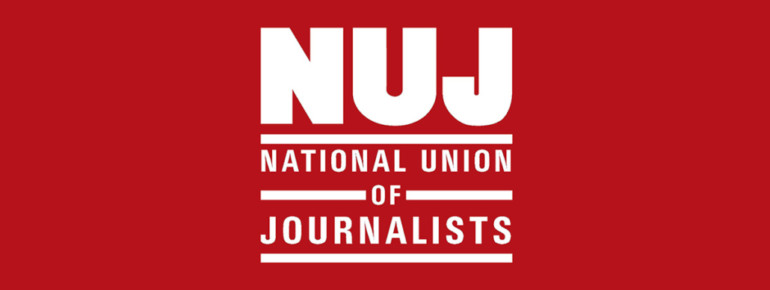
The Importance of Unions
Posted on December 2, 2020 in Uncategorized

Sara Helen Binney, Managing Editor at Bloomsbury Publishing, shares her experiences with the National Union of Journalists (NUJ) and other unions.
In my pre-publishing life I worked in a university, and it was hard not to join a union. University and College Union (UCU) leaflets were everywhere. Colleagues’ doors were plastered with posters. I knew who the reps were, and they often came to my office to chat about the current issues being discussed and how they might affect me. In every other job I’d had, in schools, libraries, even a prison, people talked openly about their union membership, and helped new starters join.
So when I switched careers and started working at Bloomsbury last year, it was one of the first things on my list. I never asked myself, “Should I join a union?” but, “Which union should I join?” I’d grown up with union activity: my dad picketed to keep his pay and conditions (and I still, somehow, have a Unison-branded stapler), and my mum’s union was crucial in her fight against disability discrimination – they helped her keep her job (no stapler, though). Union membership is, to me, like home insurance: a standard protection everyone should have, to be updated each time you move. You pay for it every month in the hope that you won’t ever need it, but knowing that if you do, it’ll save your livelihood.
Joining a publishing union wasn’t as straightforward as I’d expected. No-one talked about it at work and, still on probation and feeling precarious, I didn’t ask. I spoke to my one publishing friend, at a different company, about whether there was a publishing union. “I don’t know,” she said. “Maybe the NUJ?” I tried Googling ‘publishing unions’, and found a confusing mix of options: the NUJ, certainly, but also Unite, and was the Publishers Association really a union? I also found old but alarming articles about publishing unions being disbanded or discouraged.[i] It was hard to find a simple answer.
This is a class issue. Academia has its problems – serious problems – with inclusion, but publishing is a whole different world. It’s much whiter than the city it’s mostly based in[ii] and, crucially, posher: nearly three times as many people in publishing went to a fee-paying or independent school than the UK average.[iii] This is the some of the only class-related data available – the survey that stat is from didn’t ask what traditional socioeconomic class employees identified with. It’s pretty clear, though, that, in the words of Bernardine Evaristo, “the publishing industry is still run by the predominantly white, middle-class demographic of years ago”.[iv]
Even this privileged demographic is suffering from the exploitative practices which discourage a more diverse workforce, from the unpaid internships which are slowly being eradicated to a culture of performative overwork which is making everyone unhealthier. The only way to fight these problems, as recent campaigns like #PublishingPaidMe and #BookJobTransparency show, is together. Unions are how togetherness gets organised.
I joined the NUJ last year. Since then, I’ve seen its Book Branch negotiate furlough agreements, fight job losses, and when they can’t avoid them, agree generous redundancy packages with employers across the industry. I’ve seen union chapels in individual companies help their members deal with bullying bosses, discriminatory promotions, and unhealthy and uneven overwork. And I’ve seen, like all of us, the economic threats of the pandemic and Brexit looming larger and larger. You don’t need an impending global recession to justify joining a union, but it helps. If there was ever a time to take out insurance against potential employment disaster, it’s now.
[i] https://www.theguardian.com/books/2016/dec/16/redundancy-fears-as-penguin-random-house-derecognises-staff-unions; https://www.thebookseller.com/news/amazon-denies-union-growth
[ii] Diversity Survey of the Publishing Workforce, p. 43. https://www.publishers.org.uk/publications/diversity-survey-of-the-publishing-workforce-2019/
[iii] Diversity Survey of the Publishing Workforce, p. 78. https://www.publishers.org.uk/publications/diversity-survey-of-the-publishing-workforce-2019/
[iv] Bernadine Evaristo, Foreword to Rethinking Diversity report, p. 6. https://www.spreadtheword.org.uk/wp-content/uploads/2020/06/Rethinking_diversity_in-publishing_WEB.pdf




 Listen to the podcast
Listen to the podcast  Explore the Youtube channel
Explore the Youtube channel